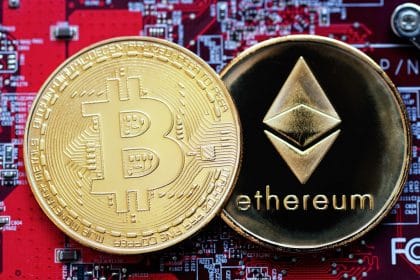Bitcoin had another disappointing week providing a negative weekly return of 1.60%.
Bitcoin Spends Another Week On the Cusp of a Breakout
Bitcoin had another disappointing week providing a negative weekly return of 1.60%. Even though the flagship cryptocurrency entered Monday, July 13th, on a good posture by rising to a high of $9,345, the bears took full control of the price action. By the end of the day, BTC was trading at $9,224, roughly 0.82% lower than the weekly open.
The selling pressure spilled over the following days pushing Bitcoin down to hit a weekly low of $9,044 on Thursday, July 16th. Nevertheless, this price point appears to have encouraged sidelined investors to get back into the market. As the number of buy orders behind BTC began to increase, its price followed and closed Friday, July 17th, at $9,151.7.
From a technical perspective, the pioneer cryptocurrency remains flat, and its price is stuck within a narrow trading range that continues compressing as time goes by. The lackluster price action made the Bollinger bands squeeze even more than what was seen last week. Such behavior of this technical index can be considered as a sign that a period of high volatility is just around the corner.
Given the high probability of a strong breakout coming soon, there are two key hurdles that market participants must pay attention to in order to benefit from the next major price movement. A break of the $9,000 support level, for instance, would likely see Bitcoin plunge towards $7,750. On the flip side, moving past the $9,400 resistance barrier could propel it towards $10,000 or higher.
A Week of Considerable Losses for Ethereum
Those betting on the downside were the only ones who were able to benefit from Ethereum’s price action throughout the past week. Indeed, the smart contracts giant provided a negative weekly return of 4.16%.
Ether kicked off Monday, July 13th, at $242.82 and quickly surged to an intraday high of $245.56, but this price level was able to reject it from advancing further. The rejection was followed by a 3.53% retracement that extended until Wednesday, July 15th. However, it seems like bears had not had enough, so they pushed ETH down another 2.98% to a weekly low of $229.84 on July 16th.
From that point on, demand for Ethereum spiked up, allowing it to recover some of the losses incurred. By July 17th, the second-largest cryptocurrency by market cap had climbed 1.25% from the weekly low to close at $232.72.
A glimpse at ETH’s 1-day chart provides a certain clarity as the Tom Demark (TD) Sequential indicator is flashing a buy signal. The bullish formation developed as a red nine candlestick, which estimates a one to four daily candlesticks upswing. If validated, Ether could rise towards the $250 resistance level, but until this supply wall does not break, trading this altcoin poses a lot of risk.
A less risky trade will come once Ethereum closes above the $250 resistance level or below the $220 support level. In the meantime, the current price action does not give any clues about the trend’s direction.
On the Sidelines Waiting Patiently
Lower-cap altcoins continue to run the show, and that is palpable on the price action that Bitcoin and Ethereum experienced this past week. Despite the stagnation phase that the top two cryptocurrencies by market cap are going through, multiple indexes suggest they are bound for wild price movements.
Paying close attention to the different support and resistance levels previously mentioned is a must for the days to come. Moving past any of these price hurdles will provide a clear roadmap for where BTC and ETH are headed next. Until that happens, investors must remain on the sidelines to avoid getting caught on the wrong side of the trend.
Executive Director at CEX.IO. His area of responsibility includes customer relationships with institutional and VIP-clients, overseeing the creation of the company’s development strategy, new products, markets and partnerships. As a member of the board of directors, Konstantin is also responsible for corporate governance.




